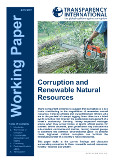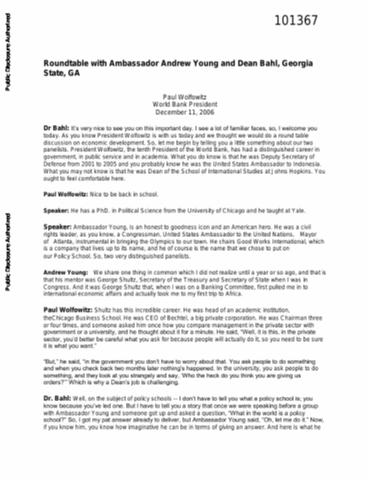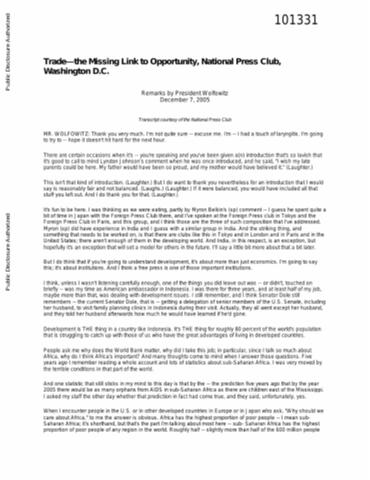WORKING PAPER 01/2007: CORRUPTION AND RENEWABLE NATURAL RESOURCES
There is important evidence to suggest that corruption is a key factor contributing to the degradation of renewable natural resources. Forestry officials and law enforcement officers who are in the pockets of corrupt logging firms often turn a blind eye to activities that threaten the sustainable management of a forest’s biodiversity. Similarly, fishery inspectors endanger stocks when they accept bribes to ignore official quotas for trawlers.






